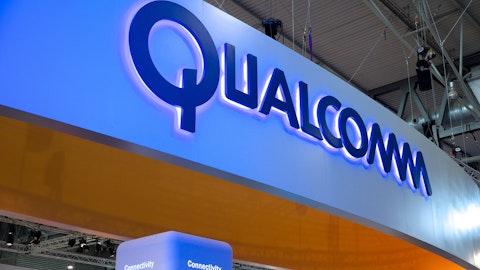In its Q2 investor letter, Wedgewood Capital said that it trimmed is stake in Fastenal Company (NASDAQ:FAST) because the company “hasn’t been able to generate better operating profit leverage from the tremendous revenue growth it has experienced.” Fastenal is a Minnesota-based wholesale distributor of industrial and construction supplies. Wedgewood maintains a “healthy position” in the company and believes that the company will benefit from the strong U.S. industrial economy. Let’s take a look at comments made by the investment firm about Fastenal in the letter to investors.
We trimmed our position in Fastenal this quarter, and we also note that it was one of our biggest detractors from performance. As we have highlighted before, we have seen a significant recovery in both the U.S. manufacturing and energy industries, as well as a recovery in Fastenal’s fundamental results, since we first purchased the stock in October 2016.
In fact, the Institute for Supply Management’s Purchasing Managers Index (PMI) – a widely-consulted gauge of industrial activity – has rallied significantly off the current economic cycle’s trough, which it hit in 2016, and continues to bounce around its peak levels for this cycle.
Since our purchase, the Company’s results have seen an inflection from declining operating profits in each of the four quarters before our purchase to double-digit percentage growth in both revenues and operating profits in each of the last four quarters. Much of this has been due to the recovery of the U.S. energy complex, which in turn has driven improvement in the broad U.S. industrial industry; however, as we have laid out before, we believe Fastenal remains the best-positioned industrial distributor, with a substantially differentiated business model, and this has led to industry-leading revenue growth, as shown below.
So why trim? We made a modest reduction this quarter, as we have been disappointed that the Company hasn’t been able to generate better operating profit leverage from the tremendous revenue growth it has experienced. In the past few quarters, the Company has seen margin pressures due primarily to rising freight costs and rising raw material costs.
While we believe inflation and deflation of raw material costs are normal, and while it is also customary for the Company to take a few quarters to pass along rising raw material costs, the freight issues are a bit more abnormal. Persistent long-haul truck driver shortages have been exacerbated recently by a government mandate forcing trucking companies to use electronic logging devices (ELDs) to track driver hours; this basically means that drivers can no longer cheat on their hours. This has caused a massive reduction in available long-haul trucking supply in a very short period of time, leading to what many industry participants have called the “tightest” trucking market (i.e. shortage of supply vs. demand) they’ve ever seen. Accordingly, trucking rates have skyrocketed in recent months. This is not just a Fastenal problem, of course; we have been hearing this from everyone who uses the trucking industry, which is just about everyone involved in shipping any sort of physical goods. So, to some degree, this is just another input cost that Fastenal—and everyone else—will eventually need to recover in pricing.
Our frustration with the Company, however, has been that Fastenal should be in a better position than its peers to handle these rising freight costs, as the Company has spent decades building a competitive advantage in its own captive fleet, to go along with all the points of distribution, inventory, plus people it has on the ground. This means that Fastenal can divert more freight to its internal fleet when external costs are rising; however, we have not seen the Company increasing utilization of its internal fleet, and that has caused greater than necessary pressure on margins. Fortunately, the available internal capacity is still there, and we do believe the Company can improve its execution on this front.
Overall, we continue to believe in the strength of the U.S. industrial economy, and we believe the Company will continue to benefit. In the shorter term, we expect to continue to see strength in sales, with the Company growing at or near the top of its industry; as the Company focuses on internal execution and pricing initiatives, we expect to see margin improvement flowing through again, as well. Finally, we would highlight that the Company is trading at a valuation last seen at the depth of the last recession, which, honestly, is preposterous. All of this explains why we have maintained a healthy position in the stock.

Christian Lagerek/Shutterstock.com
Fastenal Company (NASDAQ:FAST) isn’t very popular stock among hedge funds tracked by Insider Monkey. At the end of the fourth quarter of 2017, there were 32 funds in our database with positions in the company, compared to 26 funds at the end of the third quarter of 2017.
Shares of Fastenal have been performing well since August 2017. The stock is up 2.57% year-to-date while the share price has surged nearly 29% over the past 12 months. Over the last three months, the stock has gained 10.38%. FAST has a consensus average recommendation of ‘OVERWEIGHT’ and a consensus average target price of $56.43, according to analysts polled by FactSet Research. The current stock price is $55.94.





